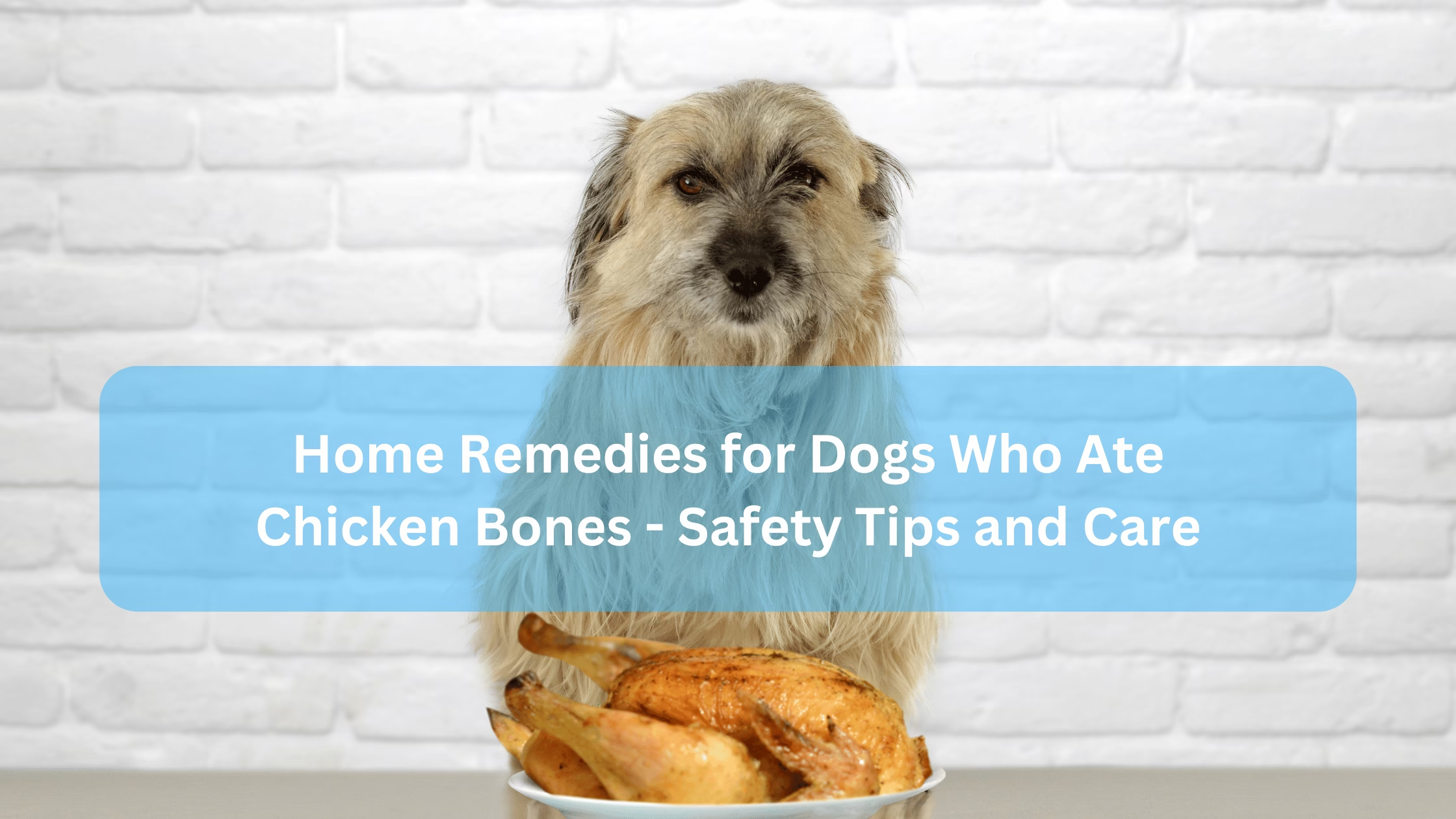Discover essential home remedies for dogs who ate chicken bones. Learn immediate actions, monitoring tips, dietary adjustments, and when to seek veterinary help to ensure your dog’s safety and health.
Chicken bones pose a significant threat to dogs due to their brittle nature, which can cause them to splinter and lead to choking or internal injuries. If your dog has ingested chicken bones, it’s crucial to act quickly and monitor their condition closely.
Effective Home Remedies for Dogs Who Ate Chicken Bones – Safety Tips and Care
Immediate Actions
- Stay Calm: Panicking can cause your dog to become more stressed. Stay calm and assess the situation.
- Remove Any Remaining Bones: Ensure no more bones are accessible. Safely remove any bones your dog hasn’t eaten.
- Check for Signs of Distress: Watch for immediate signs of choking, such as:
- Coughing or gagging
- Excessive drooling
- Difficulty breathing
Monitoring and Initial Care
- Observe for Symptoms: Over the next 24-48 hours, monitor your dog for symptoms such as:
- Vomiting
- Diarrhea
- Lethargy
- Signs of abdominal pain (e.g., whining, pacing, restlessness)
- Hydration: Encourage your dog to drink plenty of water to stay hydrated and help the bones pass through the digestive system.
- Feeding Bread: Offer small pieces of bread, which can help to cushion the bones and ease their passage through the digestive tract.
- Avoid Inducing Vomiting: Do not induce vomiting, as this can cause the bones to come back up and potentially cause further damage.
Dietary Adjustments
- Soft Food Diet: Switch your dog to a soft food diet for a few days to make digestion easier. Offer bland foods like boiled rice and chicken (boneless).
- Pumpkin Puree: Add pumpkin puree to your dog’s diet. It’s high in fiber and can help with digestion and the safe passage of bones.
- Fiber-Rich Foods: Incorporate other fiber-rich foods to aid digestion. These can include:
- Cooked sweet potatoes
- Green beans
When to Seek Veterinary Help
- Persistent Symptoms: If your dog exhibits persistent or severe symptoms, seek veterinary help immediately. Symptoms to watch for include:
- Severe abdominal pain
- Persistent vomiting or diarrhea
- Blood in stool
- Lethargy or weakness
- Professional Examination: A vet may perform an X-ray or physical examination to determine if there are any blockages or injuries.
- Possible Treatments: Depending on the situation, your vet may recommend treatments such as:
- Endoscopy to remove bone fragments
- Surgery in severe cases
Also Read: How to Teach Your Dog Tricks – The Best Guide
Also Read: 4 Homemade Dog Shampoo for Itchy Skin: A Comprehensive Guide
Conclusion
To prevent future incidents, always keep bones out of your dog’s reach.
Additionally, have your vet’s contact information and the location of the nearest emergency vet readily available for any urgent situations.
Prompt action and careful monitoring can help ensure your dog’s safety and health after ingesting chicken bones.
Sources:







